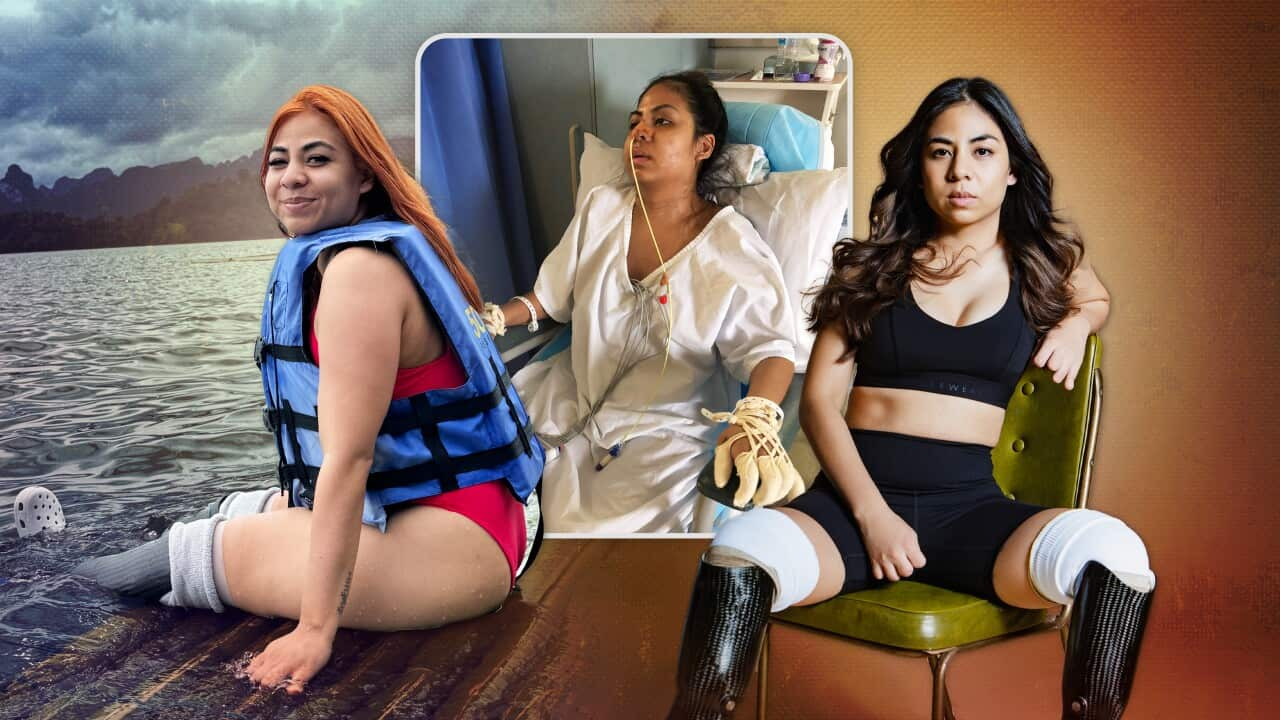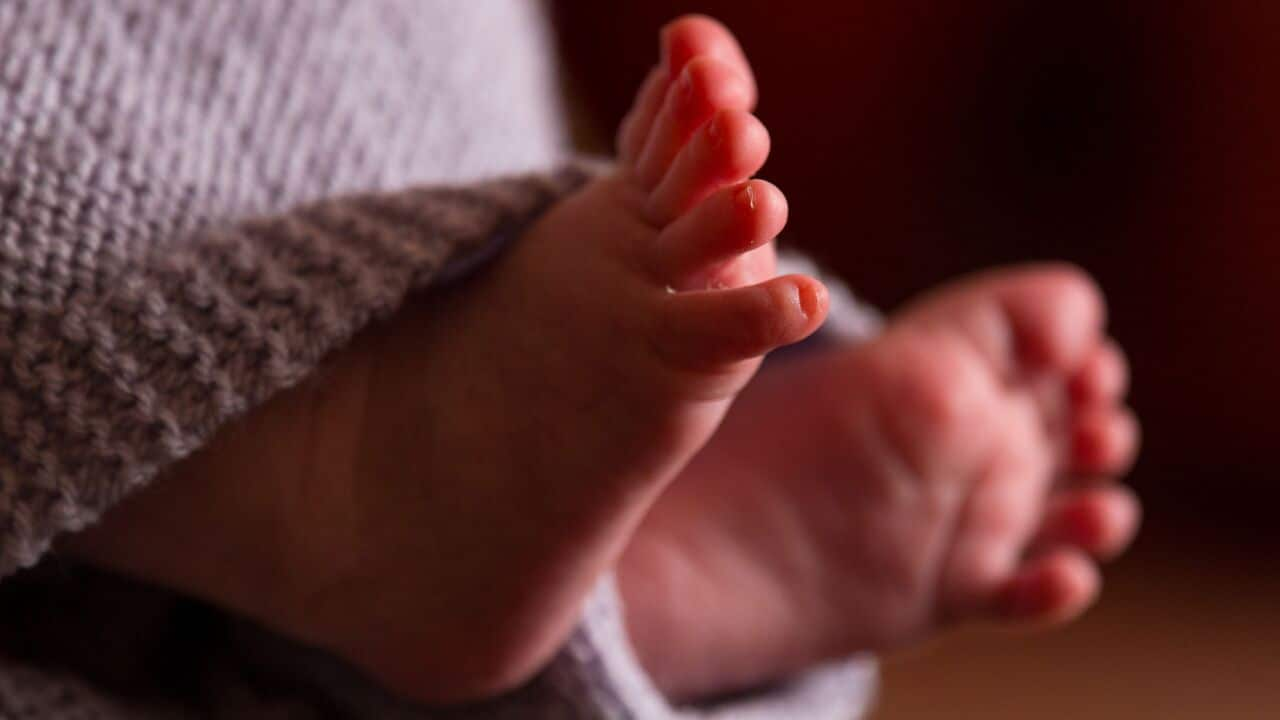Key Points
- Juttima (Jam) Chinnasri lost her legs and fingers after contracting meningococcal disease in 2018.
- She is now an advocate for people with disabilities.
- She works as a model and actor including taking part in Australian Fashion Week.
Juttima (Jam) Chinnasri was 15 when she moved from Thailand to Australia to pursue her passion for linguistics.
Her journey eventually led her to become a Teaching English to Speakers of Other Languages (TESOL) teacher in Sydney. But it took an unexpected turn 13 years later.
Chinnasri contracted meningococcal disease, an uncommon but serious bacterial infection caused by meningococcal bacteria, and lost both her lower legs and all her fingertips in 2018.
With the "unwavering support" from her family, friends, and medical professionals, she walked the catwalk during Australian Fashion Week 2022 using prosthetics.
"(Your) Mindset is a mighty thing. Even when your body is not okay, try to focus on the good things you still have," she said.
Although the number of meningococcal cases has been on the decline in Australia for the past five years, information available from Victoria's suggests infants, young children, adolescents and young adults are most at risk.
"Cases occur more often during winter and early spring," it says.
Australia recorded 281 meningococcal cases in 2018 and 206 in 2019, according to
The number of cases dropped during the height of the COVID-19 pandemic with Australia registering 90 in 2020 and 74 in 2021. The cases have picked up again with 125 reported in 2022 and 143 in 2023. This year alone, 47 cases have been reported.
When I realised that I could not keep my legs, I was sad, but I had to eventually accept it.Juttima (Jam) Chinnasri
Unlike in Australia, in Thailand, vaccinations against the disease are not included in the national vaccination program and are costly.
Chinnasri said this fact played a critical role in her being especially vulnerable to the life-changing illness.
Australia's National Immunisation Program includes free vaccines for certain strains of meningococcal disease, but gaps remain.
Recently, the Australian Centre for Disease Control reported a rise in cases, emphasising an urgent need for broader vaccine accessibility.
Chinnasri advocates for more inclusive vaccination programs, hoping to prevent others from going through her experience with the disease.
"Vaccinations included in the national immunisation program do not cover all strains of the disease. The B strain, which I was infected with, is not provided for free. Most people aren’t aware of this," she told SBS Thai.

Juttima (Jam) Chinnasri has been a guest speaker at medical conferences since losing her legs and fingers after contracting meningococcal disease. Credit: Supplied/Jutima Shinasri
Her posts caught the attention of a model and talent agency, which then reached out to her.
"Before my amputation, I had never work as a model or in the advertising industry," Chinnasri said.

Juttima (Jam) Chinnasri was one of 10 models with disabilities who walked the runway during Australian Fashion Week in 2022. Credit: Stefan Gosatti/Getty Images
Designed to promote exclusivity in fashion, Chinnasri said her participation highlighted a significant shift towards embracing diversity, especially for people with disabilities.
She was one of 10 models with disabilities to showcase the adaptive clothing collections.
She said the event followed a controversy involving model and Paralympian, Rheed McCracker, who struggled to manoeuvre his wheelchair on to a confetti-cover runway at the 2021 Australian Fashion Week.
Chinnasri has also participated in advertising campaigns, had an extra part in the 2024 movie Furiosa: A Mad Max Saga and walked the runway as part of Bangkok Fashion Week.

Juttima (Jam) Chinnasri is a vocal advocate for people with disabilities. Credit: Supplied SBS Thai /Juttima Chinnasri
According to the Australian Institute of Health and Welfare, 18 per cent of Australians live with a disability, underscoring the need for enhanced accessibility and representation.
Chinnasri is a vocal advocate for people with disabilities, urging society to consider the “bigger picture”.
"Accessibility in Australia has improved, but there’s still a lot of room for progress, especially in public facilities," she said.
Changing societal attitudes towards disability remained a challenge, she said.
Negative stigmas and misconceptions were deeply ingrained, but Chinnasri said increasing representation and visibility were crucial steps towards fostering inclusivity.
With almost 20 per cent of the population (with a disability), their voices and experiences are invaluable. If we don’t consider them, how can they feel seen and heard?Juttima (Jam) Chinnasri
Despite her challenges, Chinnasri said she was optimistic about the future.
"I am passionate about increasing representation and ensuring that people with disabilities are included in all platforms. They are often invisible, and it’s time we changed that," she said.


